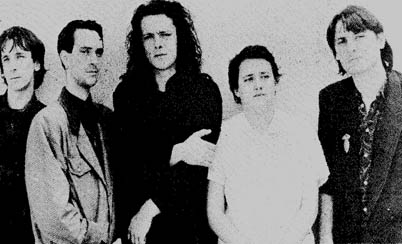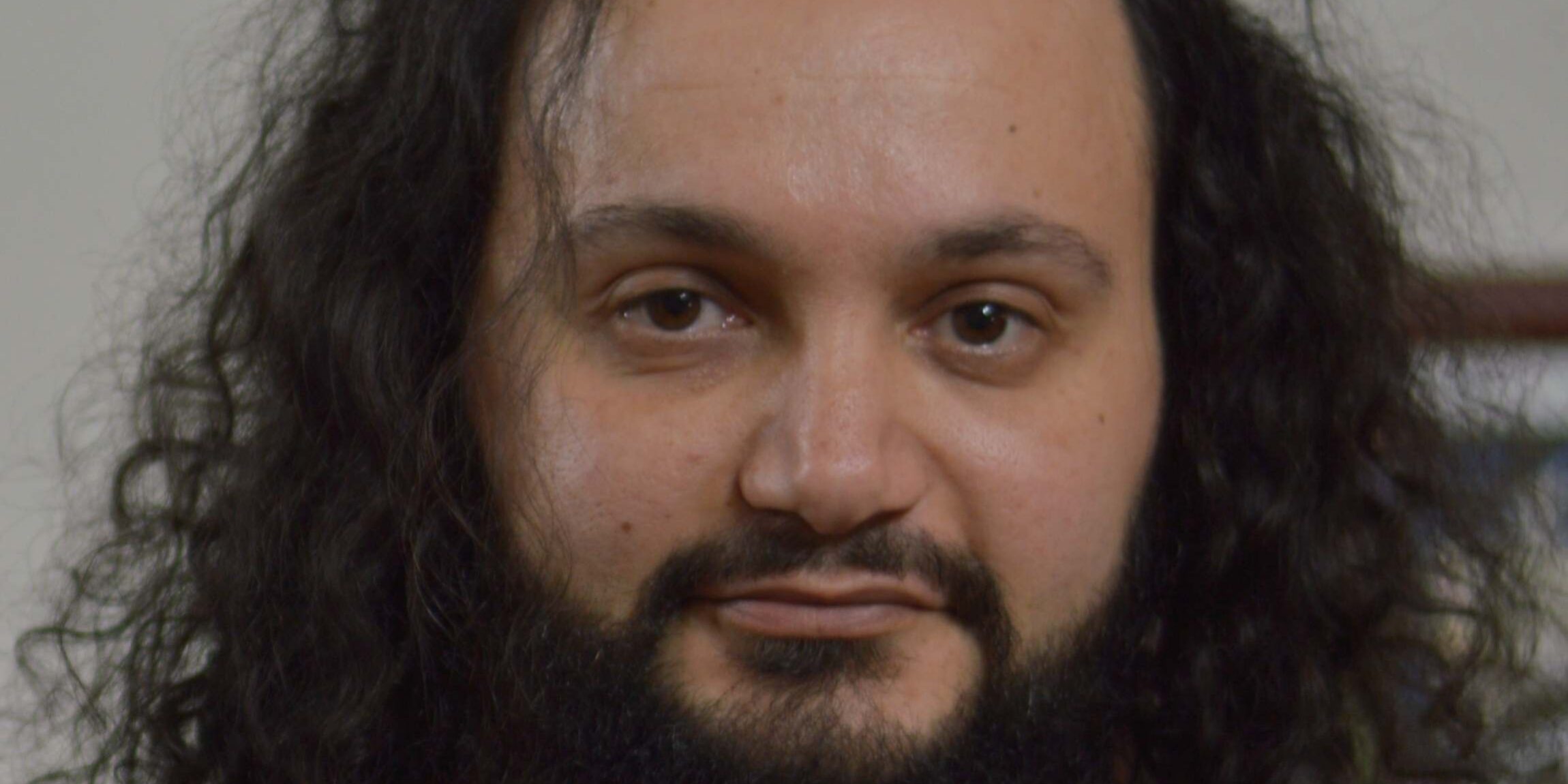Macedonian poet and playwright Sasho Blazeski talks to Ivanka Apostolova Baskar about his play Rockers and how a way of life can be an act of rebellion.
Sasho Blazeski’s play Rokerishta (Rockers) talks about the life of people living in the capital city and the mentality of people in the provinces. It’s a lucid and long piece of writing which dissects its characters’ mentalities, capturing the existential nonsense and the rattle of everyday life.
Ivanka Apostolova Baskar: We have no subculture in our country. Our cities are museums, but in your new play Rokerishta, you write about these so-called ‘rockers’ – why?
Sasho Blazeski: Rockers are not just people who listen to rock music. Rock music is a catalyst that triggers a deeper philosophical view of everything around us. To be a rocker is a way of life that defines you. Rebellion against the system, society, injustice. A life filled with music, concerts, movies, philosophy.
I wouldn’t say that we don’t have a subculture. We just need to scratch the surface, to find it. It is here, it’s just not so exposed. There are many interesting artists who create solely for the sake of art itself. They are not interested in money, or fame. Why art is not valued by society is another matter. The subculture is tough, it’s here and won’t disappear.
Ivanka Apostolova Baskar: Your rockers, they evoke over time, between Skopje and Prilep from 2001 to 2015. Why this period? What kind of decline of values and culture happened between the 1990s and 2015?
Sasho Blazeski: I wanted to mark that period; to preserve it, to write it down. Not for it only to be a distant dream. There are a number of cultural events that are wonderful, unique, and original, but as soon as they are over, they disappear and are forgotten. That’s why I wanted to write down some of them. I also wanted to emphasize the difference between Prilep and Skopje in relation to cultural events. The centralization and concentration of everything in Skopje is disastrous for the development of culture in Macedonia. This policy of concentrate everything in Skopje has led to the impoverishment of all other parts of the country in every possible way. And in terms of values, the biggest shock, like an earthquake, which caused these changes in the value system was the collapse of socialism and the rise of capitalism and neoliberalism to the highest pedestal. We have lost our sense of humanity, we have become selfish and egocentric. Hedonism and apathy prevail. And that has led to the decline of moral, ethical, and human values, and the birth of a new God called Money.
 Ivanka Apostolova Baskar: In your perspective, Macedonia is rich with dramatic topics – from everyday theft and high-level crime, a brutal brain-drain, social and juridical injustice, to corruption and normalization of nepotism, cronyism, ethnic divisions, the endless negotiations to join the European Union…
Ivanka Apostolova Baskar: In your perspective, Macedonia is rich with dramatic topics – from everyday theft and high-level crime, a brutal brain-drain, social and juridical injustice, to corruption and normalization of nepotism, cronyism, ethnic divisions, the endless negotiations to join the European Union…
Sasho Blazeski: Why we are stuck in this vicious circle!? There are no easy answers, there is no easy way to solve the problems. In the last 30 years, corruption has become systemic. It’s present in all walks of life – it’s literally everywhere. And this has led to quality being suppressed, pushed aside, banished. Mediocrity and obedience reign in society. We need cultural catharsis.
Developing the subculture, the urban lifestyle, rejecting all prejudices. Why do I say that? If we teach children to listen to quality music from an early age, to watch theatrical performances, to visit galleries and museums, they will see for themselves that life does not revolve only around money. If they read books, go to concerts, and hang out with different types of people, it will lead to overcoming prejudices regarding religion, gender, and sexual orientation, which are imposed in this society.
Ivanka Apostolova Baskar: Why for the last 20 years have he theaters in Macedonia rarely staged new contemporary playwrights? Why they are not considered important for the contemporary domestic theater?
Sasho Blazeski: Lack of courage, lack of will to promote your domestic authors. Feelings of inferiority, that the foreign author is always better than the Macedonian one. Lack of vision to create a new, specific Macedonian theatrical expression that will have something to offer to the world, not to be just followers but also to create values. That is what we should aim for, and to do that, we need to encourage Macedonian authors to create work without compromise and with honesty.
Ivanka Apostolova Baskar: Each political party has its own leading theater directors and only they are directing on stage. We are drowning in hypocrisy.
Sasho Blazeski: Politics and political parties have penetrated all the pores of living. It has corrupted the free spirit of cultural workers. Managed to divide and separate them and that is why this hypocrisy reigns. The worst thing an artist can do is to be a member of a political party. The artist must stay out of politics. To stay pure, so that he/she can freely create, criticize the system, and demand that it be improved. Unfortunately, in our country, a large number of cultural workers and artists are members of political parties.
Ivanka Apostolova Baskar: What do you think about the new alternative independent theater scene in Macedonia today, versus the repertory theater in Skopje and Prilep? What would you change or improve? In your play, you suggest great locations in Prilep and Skopje for staging alternative theater and performances.
Sasho Blazeski: The alternative theater scene must remain independent, apart from the state. I know it’s hard, but it’s the only way to preserve freedom and authenticity. Another question is why the private sector does not support the development of alternative scenes and culture in general. I think it’s because they see no value in it, and that is devastating. The new capitalists value only money; for them, the culture is a secondary matter. Yes, there are a number of interesting places in Prilep and Skopje that are great for theatrical performances. They just need to be discovered.

Macedonian band Mizar
Ivanka Apostolova Baskar: Your rockers listen to old music (they are very nostalgic) – Mizar, Anastasia, Joy Division, Foltin, Dead Can Dance, they visit art exhibitions, they read good books, they witness Satanism, they observe life around them, but they do nothing.
Sasho Blazeski: Their way of life, by itself, is a rebellion against society, the system. Not accepting conventional norms of mediocrity, obedience, and uniformity. To be a rocker also means to think with your own head, to have your own view and stick with it, and not just to be an obedient follower of political elites. One of the characters tries to urge some revolutionary events. Now, whether he will succeed in that… In the play, the music is an actor. Music is the invisible companion that whispers through space. The music has its own dialogue with the text, her own view. The music groups whose music is in the play are of high quality, beautiful, and have their own massage. That is why I mention them throughout the text.
Ivanka Apostolova Baskar: We do not have professional critics in theater, but as people we love to criticize, Why are we afraid of theater critics?
Sasho Blazeski: We live in a comfortable zone of mediocrity and obedience. We are a ‘nation of experts’. People are ‘experts’ in everything. We have an opinion on every topic and we think we can criticize anything and everything, whether we know that topic or not… Human beings are capable of creating wonderful things, but also of devaluing everything around them. It is up to us to strive for creation.
Further reading: Eva Kamchevska: “Something is very rotten in the system
Dr Ivanka Apostolova Baskar is a self-employed author, editor, translator, lecturer, programme producer, creator of video theatre projects, and visual dramaturg. She collaborates with the Theater Times USA, Mediantrop-Belgrade; Macedonian Center ITI/PRODUKCIJA, Skopje Kreativa - Festival for Creative Industries, Faculty for Art and Design/EURM Skopje, and Stone Design`s No Man`s Land-Macedonian Pavilion, Venice Biennial-Architecture 2016. She is author of Theater Comics 1997-2020; In Search of Lost Director 2008-2020; Antropologija izkušenj v gledališču, 2019.








